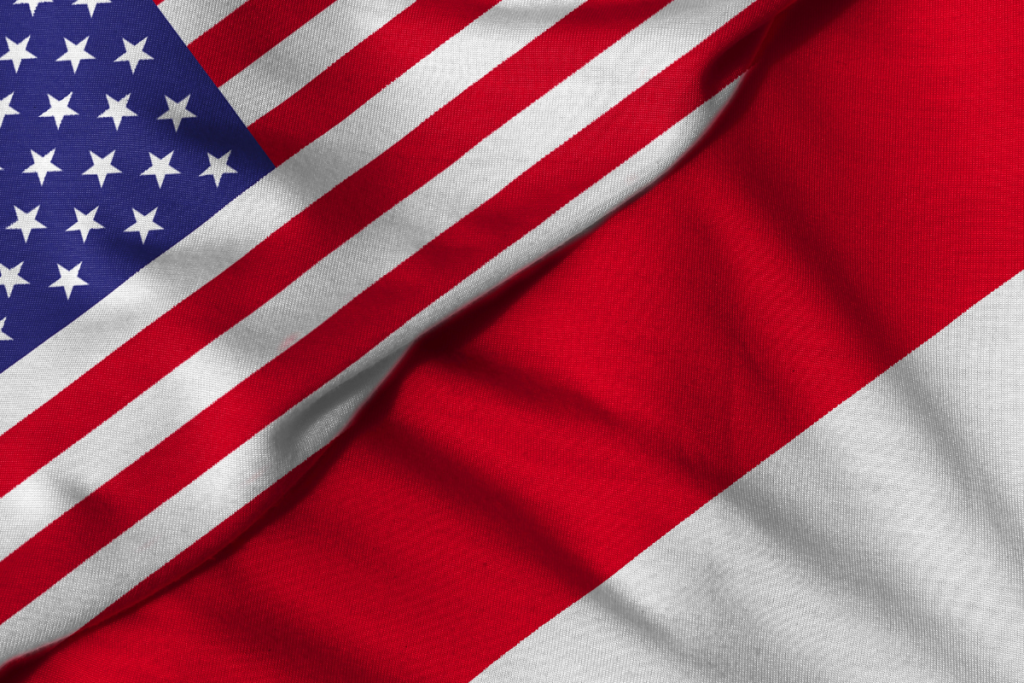The U.S. has reached a provisional trade deal with Indonesia that lowers proposed import tariffs and secures major export commitments. But the broader global reaction to America’s tariff wave suggests a fragile, and increasingly complex, trade environment heading into August.
Reduced Tariff Deal With Indonesia Reflects Tactical Shift
President Donald Trump announced on Tuesday that the U.S. and Indonesia have reached a trade agreement that lowers the planned import tariff on Indonesian goods from 32% to 19%. In exchange, Indonesia will reportedly remove levies on U.S. exports and commit to purchasing $15 billion in energy products, $4.5 billion in agricultural goods, and 50 Boeing jets. The terms were shared via Trump’s Truth Social account, but no official documentation has been released, and Jakarta has yet to formally confirm the deal.
The announcement marks a de-escalation from Trump’s initial August 1 tariff plan, detailed in letters sent to several world leaders, including Indonesian President Prabowo Subianto. Last year, the U.S. ran an $18 billion trade deficit with Indonesia, whose exports accounted for just under 1% of U.S. trade, according to U.S. International Trade Commission data.
Indonesia’s Coordinating Minister for Economic Affairs, Airlangga Hartarto, signaled the tariff increase had been paused for three weeks pending further negotiations, following meetings with U.S. Commerce Secretary Howard Lutnick and U.S. Trade Representative Jamieson Greer.
Global Pushback Builds as August Deadline Nears
Indonesia is the fourth country with which Trump claims to have reached a deal since announcing the tariff campaign. Earlier agreements, some still unconfirmed, include the U.K., China, and Vietnam. Yet the broader global reaction suggests rising tension. The European Union and Canada have both delayed retaliatory tariffs originally set to go into effect in mid-July, buying time to negotiate before the U.S. deadline.
European Commission President Ursula von der Leyen said on Sunday that the EU would push countermeasures to early August in hopes of reaching a negotiated outcome. The bloc had previously outlined duties on over $100 billion worth of U.S. imports and is now preparing a second wave of measures, according to EU Trade Commissioner Maroš Šefčovič.
Canada, meanwhile, has postponed a July 21 deadline for adjusting its steel and aluminum tariffs, extending talks until August 1. Mexico is pursuing a parallel strategy: no formal retaliatory measures have been announced, but President Claudia Sheinbaum expressed confidence that a deal will be reached before the deadline. Brazil is taking a firmer stance. President Luiz Inácio Lula da Silva said last week the country would match the U.S.’s proposed 50% tariff, signaling a hardening posture from Latin America’s largest economy.
The Real Test Is in Enforcement, Not Headlines
While public commitments like Indonesia’s $24 billion in planned U.S. imports grab attention, their realization depends on long-term commercial execution and global market conditions. Boeing jet orders, for example, often stretch over years and are vulnerable to political or financial shifts. Meanwhile, the flurry of unratified deals, shifting deadlines, and unilateral tariff threats leaves businesses operating without firm ground. The coming weeks may reveal whether this patchwork diplomacy can hold, or if volatility will deepen as trade partners respond in kind.




